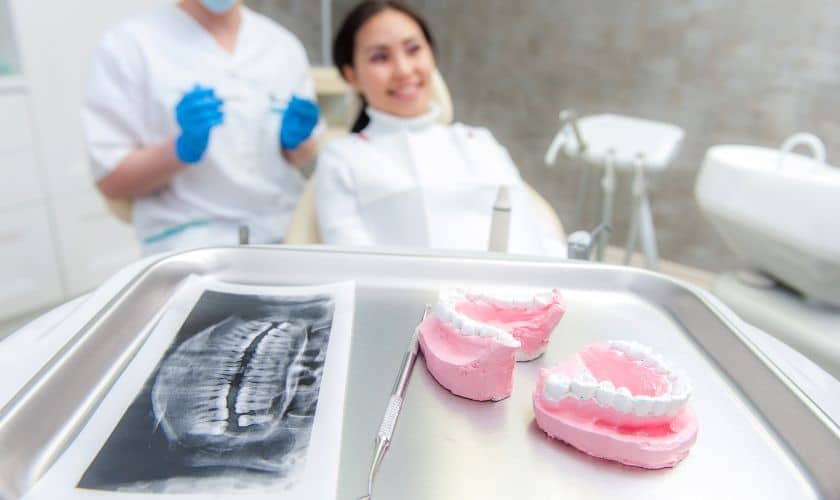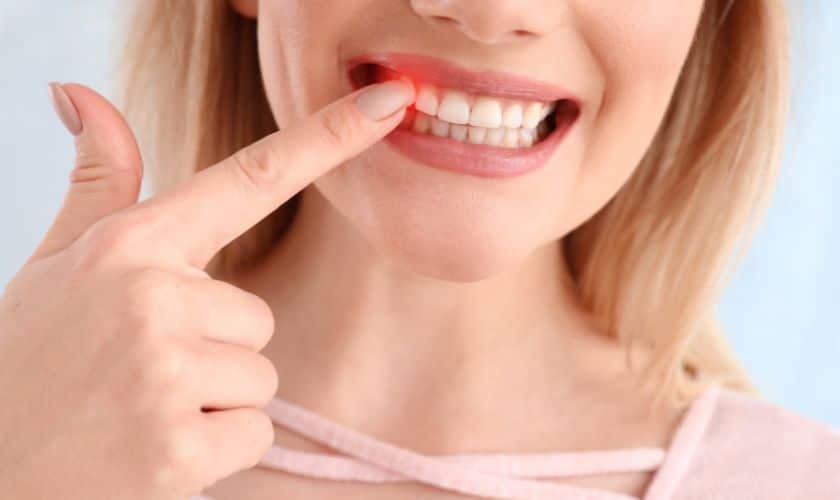
Sedation Dentistry: What Dental Sedation Can Do For You?
Are you one of those people who dread going to the dentist? Maybe it’s the sound of the drill or the fear of feeling pain. Whatever your reason may be, dental sedation can offer a solution that will make your next visit to the dentist a breeze. Sedation dentistry has become increasingly popular over recent years and for good reason! So let’s explore what dental sedation is all about and how it can benefit you. Read on to learn more!
What is Sedation Dentistry?
Sedation dentistry, also known as sleep dentistry, is a dental practice that involves the use of medication to help patients relax during dental procedures. This technique is particularly useful for people who experience anxiety or fear when visiting the dentist. Sedation dentistry can be administered in various forms depending on the patient’s needs and level of discomfort.
The primary goal of sedation dentistry is to make your visit to the dentist as painless and stress-free as possible. It allows you to receive necessary treatments without feeling anxious, nervous, or uncomfortable throughout the process. In some cases, it may even allow multiple procedures to be performed in one sitting.
Some of the most common types of sedatives used in sedation dentistry include nitrous oxide (laughing gas), oral medications such as Valium or Halcion, and intravenous sedatives like propofol.
Sedation dentistry can benefit both patients and their doctors by creating a more comfortable environment for treatment while improving overall satisfaction with dental care services.
Different Types of Dental Sedation
There are different types of dental sedation available, and it’s important to choose the right one for you. The type of sedation needed will depend on several factors, such as your anxiety level and the complexity of the procedure.
Nitrous oxide or “laughing gas” is a common form of dental sedation used for mild to moderate anxiety. It is inhaled through a mask placed over your nose, which induces relaxation while still allowing you to communicate with your dentist.
Oral sedatives can also be prescribed by your dentist before treatment. These medications come in pill form and can range from mild anti-anxiety medication to heavier doses that induce sleep.
IV (intravenous) sedation involves administering medication directly into a vein using an injection. This type of sedation allows for deeper relaxation than nitrous oxide or oral medication but requires more monitoring during treatment.
General anesthesia is also an option in some cases. With this method, patients are completely unconscious throughout the procedure and require special care before and after treatments.
It’s essential to discuss any concerns or questions about dental sedation options with your dentist before making a decision on which method is best suited for you.
Advantages of Dental Sedation
Dental anxiety is a common issue that prevents many people from receiving the dental care they need. Fortunately, sedation dentistry offers numerous advantages to help patients overcome their fear and get the treatment they require.
One of the most significant benefits of dental sedation is its ability to reduce anxiety and discomfort during procedures. It helps patients feel relaxed and comfortable throughout their appointments, which can make all the difference in ensuring a positive dental experience.
In addition to reducing anxiety levels, dental sedation also allows for more efficient and accurate treatments by minimizing movement or flinching during procedures. This ensures better results while reducing overall appointment time.
Another advantage of sedation dentistry is that it can be used for virtually any type of procedure – from routine cleanings to complex oral surgeries. Patients who have difficulty sitting still or are sensitive to certain sounds or smells may benefit greatly from this option as well.
For those with busy schedules, another perk of sedation dentistry is that multiple procedures can often be completed in one visit under deep sedation without feeling fatigued afterward.
There are numerous advantages associated with dental sedation – making it an excellent option for anyone struggling with fear or discomfort when visiting the dentist.
How to Choose the Right Dental Sedation for You
When it comes to choosing the right dental sedation for you, there are a few factors that should be considered. Firstly, your overall health and medical history should be taken into account. Some types of sedation may not be suitable for individuals with certain medical conditions.
Secondly, the level of anxiety or fear you experience during dental procedures should also be considered. If you have mild anxiety, nitrous oxide may suffice. However, if you have severe anxiety or phobia towards dental treatments, heavier sedatives such as IV sedation or general anesthesia may be necessary.
It’s important to discuss your options with your dentist and anesthesiologist before undergoing any procedure involving dental sedation. They can help determine which type of sedative is best suited for your individual needs and ensure that all precautions are taken to keep you safe during treatment.
Financial considerations should also play a role in your decision-making process. While some forms of sedation may cost more than others, it’s important not to compromise on quality care due to budget constraints.
Ultimately, choosing the right dental sedation involves careful consideration of various factors unique to each patient.
What to Expect During and After Dental Sedation
During dental sedation, you might feel drowsy or fall asleep completely. While it is important to have someone drive you home after the procedure if you go under general anesthesia, other types of sedation may allow for a quicker recovery.
The length and intensity of your sedation will depend on the type you choose and how much work needs to be done. Some patients report feeling groggy or disoriented for several hours afterward.
It’s also important to note that dental sedation does not eliminate pain. You may still require local anesthesia (numbing shots) to block any discomfort during the procedure.
Afterward, it’s recommended that you take it easy for the rest of the day following your appointment. Eat soft foods and avoid anything too hot or cold until the feeling returns to your mouth.
With proper preparation and care both before and after your dental visit with sedation dentistry, most patients experience little to no discomfort throughout their procedures!
Sedation dentistry is a game-changer for people who suffer from dental phobia or anxiety. It has made it possible for many to receive oral care without fear or discomfort. Dental sedation comes in different types and levels of potency to suit individual needs.
When considering dental sedation, it’s crucial to have an open discussion with your dentist regarding your medical history and concerns. Together you can determine the most suitable option that will make you feel comfortable throughout the procedure.
Remember, regular visits to the dentist are essential for maintaining good oral health; therefore, don’t let fear keep you away from getting the care you need. Sedation dentistry offers a safe and effective solution that can help alleviate any fears associated with visiting the dentist.
Recent Posts

How Adhesive Techniques Have Improved Denture Fit

How Dentures Can Renew Mom’s Self-Assurance This Mother’s Day

TMJ Treatment: What to Expect During Your Dental Visit

How Stress Affects Gum Health And Strategies For Stress Management

